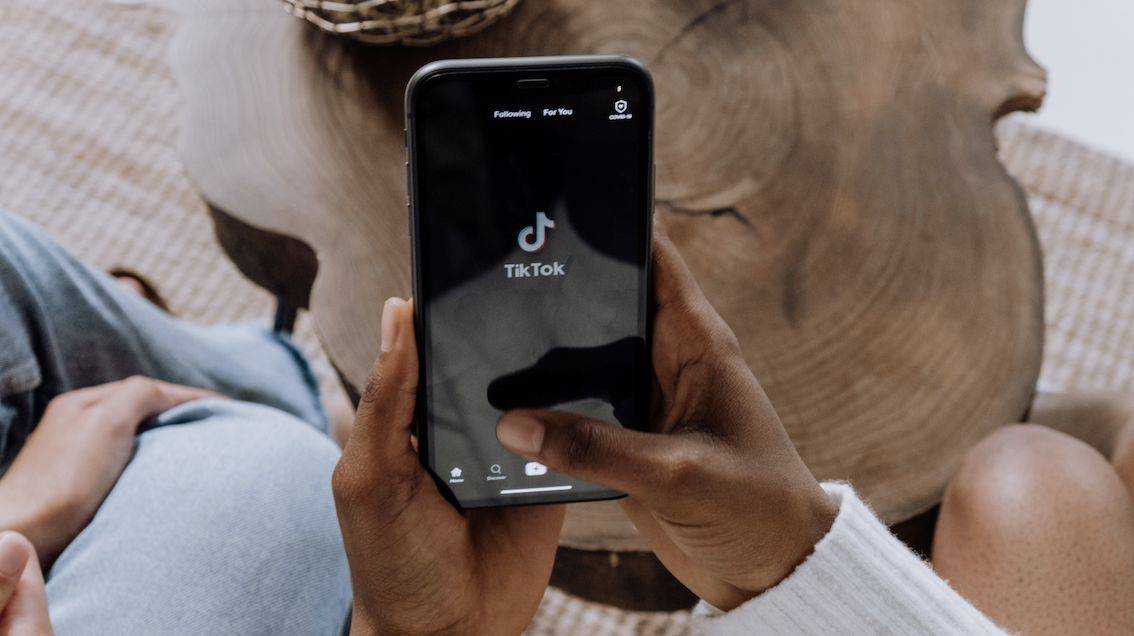Tick tock. This March, the Senate in France created a commission of inquiry into TikTok. The aim of this parliamentary work is to analyze “the use of the social network TikTok, its use of data, its influence strategy”. Because today we ask ourselves questions in our country. The first: Should TikTok be banned? Senators are asking, but they’re not the only ones. The French military ministry is also surprised, while the Air Force uses the platform to run influencer marketing campaigns.
Since confinement in 2020, in France, the application has become a real ally in everyday life. Formerly called Musical.ly, it became the place where thousands of young people express their passion for dance, cooking, humor or even beauty. In March of the same year, 65 million new users were identified worldwide, according to SensorTower.
France has not escaped this trend. After several months of success, the content creators have become real influencers on the platform. At the same time, agencies have been created to support them and allow brands to invest in the social network. Then, in addition to these very young profiles, we now also find many politicians there. In a recent article we identified about thirty politicians who are there very regularly. But today, their use of the platform raises many questions.
The list of where TikTok is banned is growing every day
What if China monitors us by collecting our data? And if it were possible for him to impose a content on us? Is TikTok a Dangerous Space for Westerners? Many countries and institutions are currently asking themselves these questions and have already issued guidelines so as not to be overwhelmed. In the United States, the case of the ByteDance application has been a big file for several months. Many congressmen have called for this tool to be banned, believing it to be dangerous. In addition, a bill that goes in this direction is currently being examined in Congress. Not to mention, on Feb. 27, the White House gave government agencies 30 days to ensure employees don’t have the Chinese app on federal devices.
This announcement follows that of the European Parliament on February 21st. “Faced with cybersecurity concerns, particularly with regard to data protection and data collection by third parties, the European Parliament, in line with the other institutions, has decided to suspend the use of the mobile application TikTok on corporate devices from March 20, 2023,” the institution explained in a press release. On February 23, the European Commission banned its employees from installing the application on their professional tools to “protect the institution’s data”.
And that’s not all. At the end of February, Canada’s data protection authority announced that it had launched an investigation Tick tock to determine its compliance with Canadian law. Just days later, the Canadian government, believing the application faced “an unacceptable level of risk,” removed TikTok from the IT tools made available to its employees.
Long before all this fuss, India had already banned the ByteDance app. In June 2020, “The Indian government decided to no longer authorize the use of certain applications. […] This decision aims to ensure the security and sovereignty of Indian cyberspace,” the Ministry of Information Technology said in a press release at the time. Among the 59 tools banned from the territory at that time, it was possible to find TikTok as well as We Chat.
What’s wrong with TikTok?
The list of countries looking to ban people with access to sensitive information from using TikTok is growing. But what is TikTok accused of? Wisetek’s data security experts reviewed TikTok’s privacy policy. “The TikTok app collects a significant amount of data, much more than a non-expert person can imagine, especially considering that the vast majority of TikTok users are relatively young,” they explain in a recent press release .
These specialists have therefore made a list of all this collected data. TikTok pre-records users’ content from their phones. TikTok has access to contacts. TikTok reads sent messages. TikTok collects card payment information and purchase history. TikTok automatically collects location information via SIM card and IP address. Without forgetting everything related to the age of the users, the type of content we value, the people around us or even access to our email addresses.
Access to this data has been debated for some time. But the actions are slowly arriving. In France, the CNIL sanctioned TikTok with up to 5 million euros last January. The reason? “Tiktok.com users could not refuse cookies as easily as they could accept them, and they were not sufficiently informed about the purposes of the different cookies,” it says A press release.
How is TikTok defending itself after this series of bans?
Many TikTok spokespeople or executives have recently come forward to defend themselves. Following the decision of the European Commission and European Parliament, someone in the application confided that they were “disappointed by this decision, which we believe is wrong and based on misunderstandings”. The team went on to say that they “requested a meeting to get to the bottom of the truth and explain how we are protecting the data. »
On LinkedIn, the application’s Vice President Europe, Theo Bertram, asked about it Tick tock received to “restore the facts”. ” It’s important to distinguish political concerns about TikTok from security concerns. While some issues on TikTok have been politicized, we take national security concerns very seriously,” he says, before listing what is being done in Europe to make this happen. “We continue to improve our approach to data security: establishing three data centers in Europe to store user data locally; further reduce employee access to data; and minimizing data flows outside of Europe”.
In France, the social network has not yet responded to the Senate’s work. On LinkedIn, Arnaud Cabanis, Managing Director Global Business Solutions, communicates more about the new features developed by the platform. For example, on March 1, he announced that “within weeks, all user accounts under the age of 18 will automatically be subject to a daily screen time limit of 60 minutes.”
Today, TikTok is one of the most used applications in France, but also in the world, where it is sixth according to the latest We Are Social Digital Report. The platform is also where social network users spend most of their time, averaging 23 hours per month. Also, let’s not forget that the application currently has more than 1.7 billion monthly active users.

Twitter enthusiast. Organizer. Explorer. Reader. Zombie aficionado. Tv specialist. Thinker. Incurable internet maven.



;Composite=(type=URL,url=https://images.radio-canada.ca/v1/assets/elements/16x9/outdated-content-2015.png),gravity=SouthEast,placement=Over,location=(0,0),scale=1)

;Composite=(type=URL,url=https://images.radio-canada.ca/v1/assets/elements/16x9/outdated-content-2016.png),gravity=SouthEast,placement=Over,location=(0,0),scale=1)
;Composite=(type=URL,url=https://images.radio-canada.ca/v1/assets/elements/16x9/outdated-content-2020.png),gravity=SouthEast,placement=Over,location=(0,0),scale=1)
